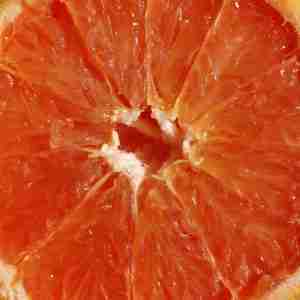Avoid Grapefruit If You’re Fighting Breast Cancer
Researchers at the University of Hawaii conducted a study that involved 50,000 postmenopausal women spanning five ethnic groups [1]. Researchers found that daily grapefruit intake was significantly associated with an increased risk of breast cancer and that the increased risk was comparable to that seen in women having hormone replacement therapy.
So what’s the problem with grapefruit?
According to many research studies, grapefruit contains substances that inhibit an intestinal enzyme known as cytochrome P450. This enzyme is involved with the breakdown and metabolism of estrogen, and also quite a few pharmaceutical drugs. Researchers discovered that eating one-quarter or more of a grapefruit per day was significantly associated with an increased risk of breast cancer. The thinking is that the enzyme which breaks down estrogen is inhibited and this can lead to an increase in circulating estrogen levels.
To simplify this, if cytochrome P450 is inhibited, then there is more estrogen circulating through the body. If you have estrogen-receptor positive cells on your breast cancer tumor, you might want to avoid grapefruit for this reason.
While I was studying the information related to the University of Hawaii study, I also found some information that stated the research was flawed [2]. So to be perfectly fair to grapefruit, the jury is still out. But since it is easily avoided, if you have estrogen-receptor positive breast cancer you may want to avoid grapefruit. Or eat it sparingly since the research noted that eating it daily was associated with a higher risk.
What About Taking Grapefruit with Tamoxifen?
Since grapefruit appears to interact with so many pharmaceutical drugs, I know the next question is going to be, what about tamoxifen? Does it interact with tamoxifen, a much-prescribed estrogen blocking drug. Apparently not! I found research [3] which indicated that naringenin, a bioflavonoid found in grapefruit, when combined with tamoxifen, impaired proliferation (rapid spread) and induced apoptosis (programmed cell death) in breast tumor cells. So it appears that grapefruit not only does not interfere with tamoxifen but actually helps tamoxifen do a better job.
So what to do? If it were me, if I were fighting an aggressive breast tumor that exhibited estrogen receptors (ER+), I would avoid grapefruit. If I had another type of breast cancer, I probably wouldn’t worry about it so much. If my tumor was removed, I was considered cancer-free and taking tamoxifen, I would consider grapefruit an ally in the fight against cancer.
References:
[1] Prospective Study of Grapefruit Intake and Risk of Breast Cancer in Postmenopausal Women: the Multiethnic Cohort Study – http://www.nature.com/bjc/journal/v97/n3/abs/6603880a.html
[2] http://www.drnibber.com/is-the-intake-of-grapefruit-juice-linked-to-increased-breast-cancer-risk/
[3] A Naringenin-Tamoxifen Combination Impairs Cell Proliferation and Survival of MCF-7 Breast Cancer Cells – https://www.ncbi.nlm.nih.gov/pubmed/24881818
GET MY BEST TIPS on healthy ways to beat breast cancer and prevent recurrences by signing up for my free e-newsletters and e-books on the right. You can also “like” me on Facebook (Marnie Clark, Breast Health Coach) to get my inspirational snippets, news and updates. I promise to do my utmost to keep you informed and empowered on your healing journey… and beyond.




Hi, Marnie! Thanks for the info! I, too, am a survivor who has found much of the same info in my research. Wanted to mention one thing: Cytochrome P450 is a system of enzymes, not one enzyme. The enzymes within that system all affect how our bodies do or don’t metabolize and utilize drugs/chemicals. The enzyme altered by grapefruit juice is CYP3A4 (cytochrome P450 3A4) If interested, see this article: http://www.australianprescriber.com/magazine/24/1/10/2/ Although not new, it’s informative. I was found to be deficient in the CYP2D6 enzyme, which explained why my post-op tylenol w/ codeine did not relieve any pain; it also questions whether Tamoxifen would work for me. I, too, chose not to take it, for the same reasons as you. I am about to reach my 4 year survivor date, and also live a healthy lifestyle. Thanks for taking time to put out this info!
Diana,
Thanks for your comment and for the clarification. I appreciate that very much. Congratulations on 4 cancer-free years and being an empowered patient! Well done.
Warmest regards,
Marnie
Hi, Marnie–I’ve read some of your articles and want to say thanks for devoting so much to this cause. I was diagnosed with ER + PR+ breast cancer back in March 2012. Am still in the healing phase–have done only alternative treatments. Would love to correspond with you.